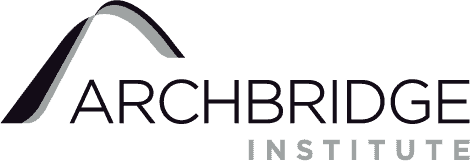This article was originally published in Merion West.
“Rather than cracking down on higher-income Americans, it is past time to liberate the other half.”
The recent protests spurred by the killing of George Floyd have renewed efforts to understand and improve the conditions faced by residents of our nation’s poorer communities, particularly when it comes to interactions with law enforcement.
Former Wall Street trader-turned-author and photographer Chris Arnade has spent more time than most traveling into communities across the country to interview and photograph the places and people that have been largely forgotten or ignored. Recently, Arnade wrote about the contrast between the freedom enjoyed by those with higher incomes and the strict and seemingly arbitrary rules endured by those further down the income ladder.
Arnade’s point is well taken. The rules that govern everyday life are different for front- and back-row Americans (his terms, not mine). Addressing problems in law enforcement is a fine place to start, but it is not nearly enough. Ending—or significantly curtailing—qualified immunity, reforming or eliminating police unions, and stopping police militarization are concrete steps that could begin the process of restoring communities’ trust in the officers that are supposed to be there to protect and serve them.
But the disparities go far beyond interactions with law enforcement. Rather than cracking down on higher-income Americans, it is past time to liberate the other half.
For the front row, the path to achieving economic stability and success is relatively straightforward. A college degree—and the attendant circle of professional contacts—grants access to non-paying (or low-paying) internships that eventually purchase access to wealthy neighborhoods with desirable job opportunities and good schools. Education—or rather, the credentials that come with formal education—are the keys that open these doors.
But completing that education and accessing those job opportunities often means leaving home and moving to one of America’s urban centers. Those who do not follow this path—whether it is because they value being close to family, staying in their local community, or simply because they believe that a traditional four-year university is not the correct fit for them—find themselves locked out of that world and with fewer opportunities for stable and meaningful employment.
The quintessential example of how this impulse can quickly go awry is evident in the consequences of propping up universal college as a policy goal, then massively subsidizing college attendance.
Whatever the reason, they find themselves stuck on the “wrong” ladder, and too often they become the objects of either study or pity from those on the “right” ladder. Arnade is at his best when discussing this dynamic and cautioning well-intentioned reformers from the front row against relying too much on technocratic solutions that sound good and might be incrementally helpful, but cannot ultimately solve these problems. Critiquing a new book by New York Times columnists Nicholas Kristof and Sheryl WuDunn, Arnade writes that “They can’t get beyond wanting to get people on the good ladder, and not dismantle the system of two ladders…[Kristof and WuDunn] hold up their ladder as the solution, not the problem.”
Many policy solutions fall victim to this pitfall. At their worst, political solutions that emphasize various ways to push people into attaining ever more formal education embody the attitude described by Arnade as one that says: “Climb my ladder, and if you don’t you will die an early death. Believe what I believe, or you will sink further behind. Be what I am, for to be anything else is to be profane.”
The quintessential example of how this impulse can quickly go awry is evident in the consequences of propping up universal college as a policy goal, then massively subsidizing college attendance. As government-subsidized student aid and loan programs expanded dramatically, the cost of tuition skyrocketed. College tuition has more than doubled since the 1980’s, and student loan debt now sits at nearly $1.6 trillion—the second-highest consumer debt category, behind only mortgages.
Meanwhile, despite the higher price tag, college accessibility has substantially increased. That increase, however, has fueled the phenomenon of degree inflation: the rising demand for a four-year college degree for jobs that previously did not require one. After all, with college so widely accessible, why would employers not insist that candidates check that box?
The overall result has been the transformation of college attendance from an optional professional pathway for some into a prerequisite for even middle-income jobs. Furthermore, this reality—and the consequently higher proportion of Americans going to college—has led to a dramatic decrease in the actual rigor of higher education. Grade inflation is rampant, and, for many, the hardest part of college was simply getting in.
Although the debacle of designing policies to funnel everyone onto the college-based ladder of success might be the most egregious example of the unintended consequences resulting from this mindset, other examples abound. In addition to policies intended to push people into certain “acceptable” pathways for success, there are also policies designed to “protect” them from unacceptable arrangements.
Tellingly, economists, consultants, and political staffers are not among the professions that require a license.
Chief among these are the numerous occupational licensing restrictions that set up costly and time-consuming barriers that limit entry into low- and middle-income professions. Over the past 70 years, the percentage of occupations requiring a license has gone from about 5% to more than 20%, and this is almost always in the name of public safety. Between 1993 and 2012 alone, states added an average of 31 new low-income licensing restrictions, requiring licensing for dangerous occupations like makeup artists and travel guides—exacerbating income inequality and depressing economic mobility. Tellingly, economists, consultants, and political staffers are not among the professions that require a license.
Similarly, but perhaps more controversially, higher minimum wage laws designed to protect lower-income workers from being taken advantage of have also come with their share of unintended consequences. Although most of the recent research on minimum wage increases has focused on the immediate employment and wage effects, the more far-reaching consequences are not in the jobs that might be lost following an increase but, rather, in the future jobs that are never created. As technology and capital investment have made some workers more productive and further automation looms ahead, soft skills—a broad set of competencies, behaviors, attitudes, and personal qualities that enable people to effectively navigate their environment, work well with others, perform well, and achieve their goals—have quickly become the most important (and lucrative) skills in the modern labor market.
Entry-level employment, particularly among adolescents, is effective in building these skills and has been linked to both academic and career success. As minimum wages increase, these opportunities dwindle. Between rising minimum wages and the increasing demands of formal education, the teen summer job appears to be on its way out.
But these diminished opportunities have not been equally distributed across the socioeconomic ladder. White teenagers and those with higher household incomes are still much more likely to work a summer job. Moreover, while these laws prevent those with the fewest skills from gaining the experience necessary to increase their human capital, teenagers from wealthier backgrounds are fortunate enough to be able to take advantage of unpaid internships. The overall result is that someone from a poorer background is prohibited from taking a job paying $7 per hour, but his or her wealthier counterpart can take the same position for $0 per hour.
The through lines connecting these policies come down to a distrust of activities that fall outside the scope of what their proponents consider “proper” and an attempt to standardize the pathway of economic success. Even as clever entrepreneurs discover ways to sidestep some of these restrictions, policymakers devise ways to keep the scope of acceptable activities as narrow as before. The rise of the gig economy has brought part-time and flexible opportunities to earn income to almost anyone with a smartphone.
Higher-income workers have enjoyed flexible 1099 independent contractor status for years with impunity, but as soon as that opportunity was available to those with lower-incomes, the arrangement drew the ire of those eager to protect them from these unsavory arrangements. California’s notorious AB-5 greatly restricts individuals’ right to work as independent contractors, instead forcing them to either become employees or severely reduce their number of gigs.
All of this brings us back to Arnade’s observations about the different rules that seem to govern front-row and back-row Americans. The front row enjoys opportunities provided by completing formal education, taking unpaid internships, and, yes, taking advantage of complex and limited regulations like those governing the financial sector. Those in the back row are faced with a shrinking slate of options as the economy changes around them—and also as potential bottom up alternatives are blocked.
Even reforming the policies mentioned here would not solve the problems facing these communities. Indeed, trying to come up with solutions from afar may be part of the problem. Instead, the goal should be to maximize options, even if they fall outside of the mainstream ladder of economic success.
It is easy for policymakers to say that they respect those in the back row, but the policies that are enacted tell a different story. Rather than engineering increasingly complex ways to give people dignity, stepping back—and entrusting people with a wider range of choices and options—might just create more space for them to find that dignity on their own.
Ben Wilterdink is the director of programs at the Archbridge Institute, a Washington-based think tank focused on economic mobility.


